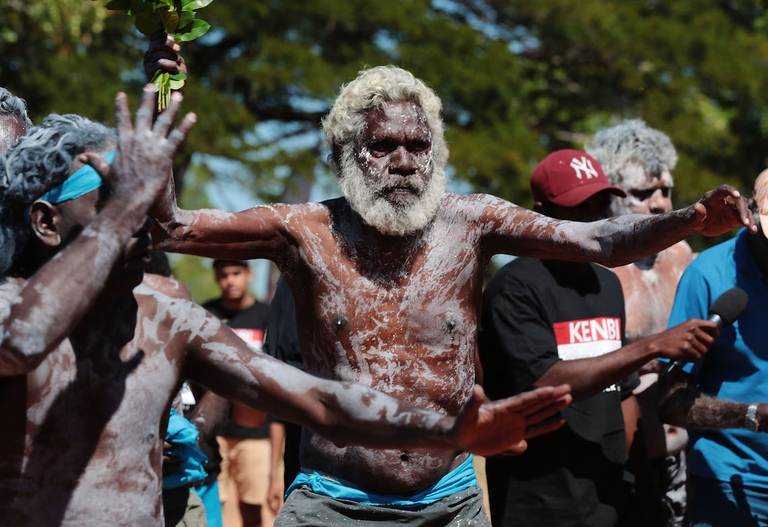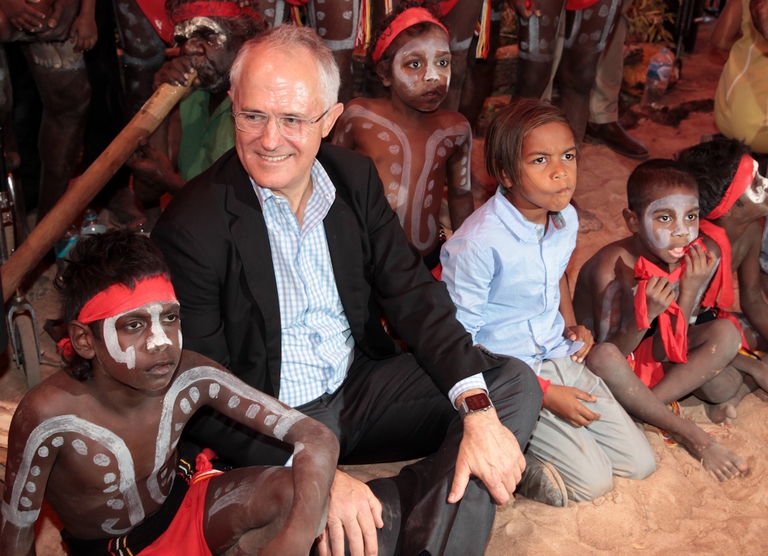
A special report from the Yuqui territory delves deep into the dreams, challenges, joys and sadness of one of Bolivia’s most vulnerable indigenous groups.
The longest running aboriginal land claim in Australian history, the Kenbi land claim, was concluded on the 21st of June. This date signified the end of a 37 year long legal battle for the Larrakia aboriginal people against the Australian government: a fight to be given back ownership of their traditional lands. The victory of the Larrakia This
The longest running aboriginal land claim in Australian history, the Kenbi land claim, was concluded on the 21st of June. This date signified the end of a 37 year long legal battle for the Larrakia aboriginal people against the Australian government: a fight to be given back ownership of their traditional lands.
This momentous victory for the Larrakia, who number 2,000, means that 52,000 hectares of land in Australia’s Northern Territory, including the Cox peninsula near Darwin, were officially handed back to them. The claim had previously been rejected in 2006. Despite this setback they continued to fight for their rights and on the 6th of April a land agreement was signed, with the ceremony taking place on the 21st of June.
At the handing over ceremony Australian Prime Minister Malcolm Turnbull stated that the fight was a “story that epitomises the survival and resilience of our First Australians”. The settlement also includes the handing over of an additional 13,000 hectares of land, which Nigel Scullion, the Indigenous Affairs Minister, stated “would give them the means to advance their own economic development“. Furthermore, the Australian government committed 31.5 million Australian dollars to rehabilitating the land subject to pollution due to its activities.
At #Kenbi hand back event Larrakia elder Eric Fejo takes aim at NT Chief Minister. https://t.co/UE4yCP83Yb #ausvoteshttps://t.co/qvCO42dowN
— Anna Henderson (@annajhenderson) June 21, 2016
Larrakia member Jordan Singh highlighted his joy over the victory, but also the sadness at the length of time it took for the land to be returned. In a speech at the handing over ceremony he stated, “I’m very happy after 37 years, we’ve got our land back. I’m very sad that our mums aren’t here today“.
The victory, however, exists in a much wider context. When the British colonised Australia, Aboriginal land was considered empty and was expropriated. This expropriation was combined with widespread abuse directed at aboriginal peoples. This has led to long-lasting intergenerational effects, with Aboriginal Australians currently making up a disproportionate amount of the prison population and tending to have lower living conditions that the rest of the country.
However, positive steps are being taken to reverse the tide of abuse and suffering. For example, the Mabo Case was a high court ruling emitted in 1992, which overturned the empty land precedent, providing recognition of aboriginal land titles and established a mechanism to determine land claims. Despite this ruling, most aboriginal land claims haven’t yet been successful. However, the prominence and success of the Kenbi land claim may represent a major step not just for the Larrakia but for Aboriginal Australians across the country.
Siamo anche su WhatsApp. Segui il canale ufficiale LifeGate per restare aggiornata, aggiornato sulle ultime notizie e sulle nostre attività.
![]()
Quest'opera è distribuita con Licenza Creative Commons Attribuzione - Non commerciale - Non opere derivate 4.0 Internazionale.
A special report from the Yuqui territory delves deep into the dreams, challenges, joys and sadness of one of Bolivia’s most vulnerable indigenous groups.
The Yuqui people of the Bolivian Amazon fight not only to survive in the face of settlers, logging and Covid-19, but to preserve their culture and identity.
Jair Bolsonaro is accused of crimes against humanity for persecuting indigenous Brazilians and destroying the Amazon. We speak to William Bourdon and Charly Salkazanov, the lawyers bringing the case before the ICC.
Activists hail the decision not to hold the 2023 World Anthropology Congress at a controversial Indian school for tribal children as originally planned.
Autumn Peltier is a water defender who began her fight for indigenous Canadians’ right to clean drinking water when she was only eight years old.
The pandemic threatens some of the world’s most endangered indigenous peoples, such as the Great Andamanese of the Andaman and Nicobar Islands in India.
The Upopoy National Ainu Museum has finally opened. With it the indigenous people of Hokkaido are gaining recognition but not access to fundamental rights.
A video shows the violent arrest of indigenous Chief Allan Adam, who was beaten by two Royal Canadian Mounted Police (RCMP) officers.








